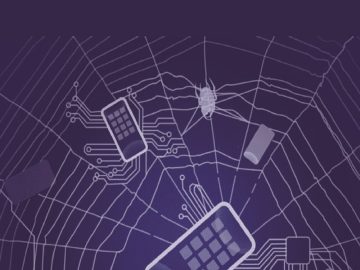By Mohit Shrivastava, ICT Chief Analyst, Future Market Insights
Bots have incorporated themselves into our online experiences in the ever-expanding digital world. Bots have altered the way we engage with technology, from customer service and virtual assistants to automated operations. Our way of living and working has undergone a profound transformation due to the emergence of intelligent bots with abilities powered by machine learning and artificial intelligence. These bots can comprehend real language, assess emotions, and respond based on context, offering personalized experiences that were earlier unimaginable.
The usage of bots is growing, but with it emerge new difficulties, notably in the domain of security. In order to maintain the integrity and safety of our digital environment, bot security is essential.
According to Future Market Insights (FMI), a leading market research firm, the global bot security market size is predicted to surpass US$ 666.7 million in 2023. It is projected to attain a valuation of US$ 3,624.5 million by 2033, clocking a CAGR of 18.3% from 2023 to 2033.
In this article, we will delve into the evolution of the bot security market and the intelligent bot revolution that has changed how we live and work while examining the effects of bot security on users, businesses, and the global economy.
The Early Evolution Days: Protecting Simple Bots
Security in the early days of bots was largely concerned with defending against typical risks like spam, phishing, and automated assaults. To recognize and stop criminal activity, organizations have established security procedures, including CAPTCHA tests, authentication systems, and behavior tracking. These steps lay the groundwork for fundamental bot security, guaranteeing a certain level of security for customers and companies.
Fast Forward to the Rise of Advanced Attacks
As bots developed in sophistication and their ability to imitate human behavior increased, fraudsters became acquainted with fabricating complex assaults that were aimed exclusively at bots. They are implementing cutting-edge strategies like botnets, exploiting loopholes in bot frameworks, and using artificial intelligence to avoid detection. In order to protect against these changing dangers, organizations had to face new difficulties, which called for the development of bot security methods.
The Imperative of Bot Security for Customer Confidentiality and Data Protection
For customer confidentiality and sensitive data to be safeguarded, bot security is essential. As bots get more sophisticated, malicious hackers can take advantage of pitfalls to obtain unauthorized access or steal personal information. Users may enjoy a safer online environment and feel comfortable in their interactions with bots by establishing formidable bot security measures in place. Bot security also aids in reducing the dangers of phishing, spam, and social engineering assaults, giving consumers piece of mind while fostering confidence in online interactions.
The Vital Role of Bot Security for Safeguarding Trust and Reputation Among Businesses
Bot security is crucial for organizations to preserve consumer and brand confidence. Serious repercussions may result from a security breach or compromise, including monetary loss, company reputation harm, and significant legal obligations. Businesses may defend their data, safeguard their intellectual property, and guarantee the continuity of their operations by prioritizing bot security. Strong bot security measures may also shield organizations from financial losses and maintain their standing in the marketplace by preventing fraudulent behaviors like account takeovers and phony transactions.
The launch of HUMAN Bot Insights ServicesTM was announced in February 2022 by HUMAN Security, Inc.® (formerly White Ops), the industry pioneer in protecting businesses and internet platforms from sophisticated bot attacks and fraud. This service will assist customers of BotGuard for Applications in taking preventative action against sophisticated bots. Such developments are expected to uptick bot security in the coming years.
Embracing the Bot Revolution for Global Economic Resilience in the Digital Era
The rise of intelligent bots has had a significant effect on the world economy. Across sectors, bots have boosted productivity, simplified procedures, and improved consumer experiences. However, economies are susceptible to serious disruptions without adequate bot security. Malicious bot incidents, including distributed denial-of-service (DDoS) assaults or data breaches, can destroy vital infrastructure, mess up supply chains, and result in significant financial losses. By investing in bot security, governments and companies may safeguard their financial interests, advance stability, and encourage sustainable growth in the digital age.
The Way for Businesses to Ensure the Integrity of Their Bot-driven Operations
- Considering Ethics to Promote Responsible Bot Use
As the usage of intelligent bots increased, ethical questions about them began to surface. Deepfake bots, automated misinformation, and privacy issues all garnered attention. The ethical usage of bots is now included in the scope of bot security, which now goes beyond conventional threat mitigation. To uphold trust and ethical standards, businesses and developers must prioritize responsible bot formation, respect for privacy laws, and candidness in bot interactions.
- Cooperation and Threat Intelligence
Organizations started cooperating and exchanging threat intelligence as they became aware of the interrelated nature of bot security. The overall defense against bot assaults has been reinforced by pooling resources and exchanging knowledge about new dangers, attack methods, and detection tools. This cooperative strategy has produced more thorough security plans and quicker reaction times to reduce the hazards associated with bots. Cooperation and threat intelligence can pave the way for staying ahead of sneaky bots.
Current Trends in Bot Security: Businesses Ravel the Power of Protection
Bot security solutions combine biometric authentication approaches to counter the dangers posed by conventional authentication procedures. By reducing the possibility of unwanted access and averting bot-driven assaults, facial recognition, voice authentication, and fingerprint scanning provide extremely secure methods of confirming user identification.
- Developments in Natural Language Processing (NLP)
NLP developments are essential for improving the security of chatty, interactive bots. Sophisticated NLP algorithms examine language patterns and semantic interpretations to find potentially damaging information or suspicious intent. Organizations may recognize and reduce risks related to social engineering attacks and harmful interactions by utilizing NLP skills.
In the bot security market, real-time threat-hunting solutions are gaining popularity. These cutting-edge systems use big data analytics and machine learning algorithms to continually monitor network traffic. Organizations may improve their security posture by proactively neutralizing new bot risks by spotting and analyzing unusual activity in real time.
Strategies to Gain Advanced Bot Security
- Comprehensive Bot Governance: Develop a framework for comprehensive bot governance that covers the creation, deployment, monitoring, and retirement phases of bot lifecycle management. To guarantee standardized and safe bot operations, this framework should include security rules, standards, and processes.
- Bot Identity and Access Management: Set up reliable authentication and authorization procedures for bots to guarantee that only authorized bots may access critical systems and data. Secure API keys, digital certificates, or token-based authentication can be used in this.
- Monitoring based on behavior: Use monitoring to find unusual bot activity. Organizations can spot potentially harmful bots and respond appropriately in real time by setting baseline behavior and regularly monitoring for variations.
- Bot Behavior Analysis: To distinguish between trustworthy and malicious bots, use cutting-edge techniques like bot behavior analysis. Response timings, session patterns, and interaction behavior analysis can be used to spot suspicious activity and reduce risks.
- Automation in security: Use automation to speed up security procedures and reaction times. Automated systems may swiftly identify and counter bot attacks, speeding up reaction times and lessening the effect of security problems.
- Continuous Security Education and Training: Encourage a culture of security awareness by giving employees and developers access to continued security education and training. This guarantees that everyone is aware of the dangers posed by bots and follows security best practices while developing and deploying bots.
The Future Will Constantly Require Adaptation and Cutting-Edge Methods
The development of bot security is a continuous process. Attacks will get more sophisticated as bot capabilities develop further. The use of cutting-edge methods and ongoing modifications are key to future bots’ security. To keep ahead of new threats and ensure the resilience of bot-driven ecosystems, predictive analytics, anomaly detection, and real-time threat intelligence will be essential.
Conclusion: Evolution of Dynamic Bot Security Landscape for a Secure Future
Bot security has evolved due to the necessity to defend against sophisticated assaults, assure responsible bot usage, and address ethical issues. The evolution of bot security, in tandem with remarkable technological advancements, can pave the way for a more secure future. Organizations must maintain vigilance, adopt cutting-edge security measures, and promote cooperation as the bot landscape changes in order to safeguard the intelligent bot revolution and enjoy its full advantages. We can create a world where savvy bots and strong security coexist peacefully by doing this.
About the Author
Mohit Shrivastava, Chief Analyst ICT at Future Market Insights. Mohit Shrivastava has more than 10 years of experience in market research and intelligence in developing and delivering more than 100+ Syndicate and consulting engagements across ICT, Electronics, and Semiconductor industries. His core expertise is in consulting engagements and custom projects, especially in the domains of Cybersecurity, Big Data & Analytics, Artificial Intelligence, and Cloud. He is an avid business data analyst with a keen eye on business modeling and helping in intelligence-driven decision-making for clients.
Mohit holds an MBA in Marketing and Finance. He is also a Graduate in Engineering in Electronics & Communication.
https://www.linkedin.com/in/shrivastavamohit/
Future Market Insights (FMI), is an ESOMAR-certified market research and consulting market research company. FMI is a leading provider of market intelligence and consulting services, serving clients in over 150 countries; its market research reports and industry analysis help businesses navigate challenges and make critical decisions with confidence and clarity amidst breakneck competition. Now avail flexible Research Subscriptions, and access Research multi-format through downloadable databooks, infographics, charts, and interactive playbook for data visualization and full reports through MarketNgage, the unified market intelligence engine powered by Future Market Insights. Sign Up for a 7-day free trial!
(EMAIL, TWITTER, etc..) and at our company website https://www.futuremarketinsights.com/



